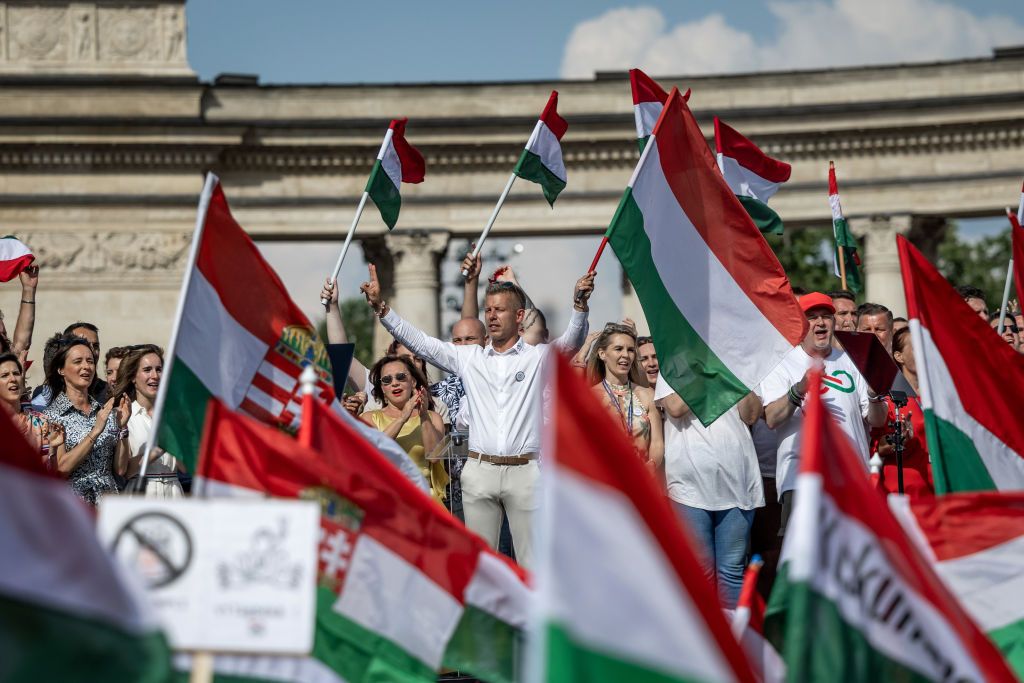The Hungarian opposition leader, Peter Magyar, has emerged as the most serious opponent to Prime Minister Viktor Orban’s far-right Fidesz party. Magyar’s TISZA party won seven seats in the recent European Parliament elections, challenging Orban’s dominance. Magyar clarified his stance on providing weapons to Ukraine, stating that Hungary will not send troops or weapons to Kyiv. This decision aligns with the Hungarian government’s position, emphasizing the sensitive situation of Hungary in the ongoing conflict. Magyar and his MEPs entered the European Parliament as part of the European People’s Party (EPP) group, with support conditional on backing Ukraine’s self-defense.
Hungarian Prime Minister Viktor Orban endorsed Dutch Prime Minister Mark Rutte’s bid to become the next Secretary General of NATO. Rutte gained Orban’s support after agreeing to Hungary’s opt-out of NATO initiatives aimed at supporting Ukraine. Orban has long been a close ally of Moscow within the EU, obstructing aid for Ukraine and opposing Kyiv’s NATO and EU accession. The EPP, including leaders like Ursula von der Leyen, made acceptance into their grouping conditional on supporting Ukraine. Despite the differences in approach towards Ukraine, Magyar reiterated his support for Ukraine’s independence and sovereignty while characterizing Russian President Putin as an aggressor.
The European Parliament elections resulted in far-right gains, a shift towards the right in European legislation, yet maintained mainstream bureaucrats at the helm. The center-right EPP remained the largest party in the European Parliament, with projections showing it holding a significant number of seats. The elections also led to the toppling of the French government and showcased mixed receptions for Ukraine-skeptics within the EU. Despite challenges from various factions, the European political landscape continues to reflect a balance between right-wing and centrist ideologies. The results highlighted the region’s political diversity and the ongoing debates surrounding the EU’s future direction.
Magyar’s cautious approach towards supporting Ukraine reflects the complex dynamics at play within the EU, particularly concerning relations with Russia. Hungary’s position as a close ally of Moscow complicates its stance on Ukraine, leading to debates within the country and at the European level. The negotiations between Magyar and EPP leaders like Manfred Weber underscore the delicate balancing act required to navigate these issues. While there is consensus on supporting Ukraine’s independence and sovereignty, the means of doing so vary among different political factions. The discussions around Ukraine also shed light on broader geopolitical considerations and the impact of external actors on European politics.
As Hungary navigates its position on Ukraine and its broader alliances within the EU, the country faces challenges both domestically and internationally. Orban’s leadership, which has emphasized close ties with Moscow, has come under increasing scrutiny amid shifting European dynamics. Magyar’s emergence as a key opposition figure points towards potential changes in Hungary’s political landscape and its stance on critical international issues. The debates around providing support to Ukraine intersect with broader questions about Hungary’s place in Europe and the EU’s role in security affairs. The ongoing discussions will likely shape Hungary’s foreign policy approach and its relationships within the EU and beyond.


